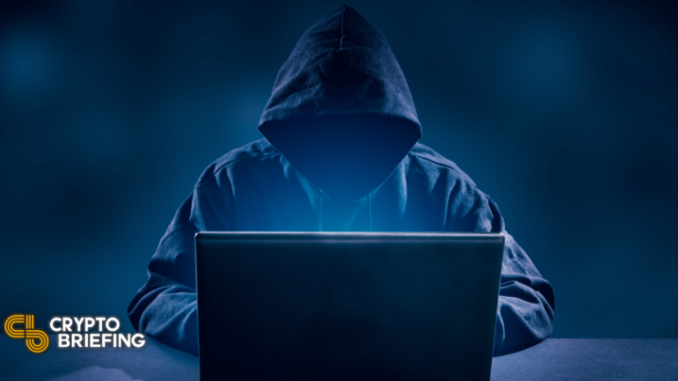
Key Takeaways
The U.S. authorities are asking victims of EtherDelta’s 2017 hack to fill out a questionnaire related to the event.
In 2017, a hacker alleged to be Anthony Tyler Nashatka stole more than $1.4 million from users of the DEX.
The search for victims follows the indictment against Nashatka announced by a federal grand jury in 2019.
Share this article
The United States Secret Service and Office of the U.S. Attorney have issued a call for victims of 2017 EtherDelta’s 2017 hack to come forward and fill out a questionnaire.
U.S. Seeks Info on EtherDelta Hack
The U.S. government has asked victims of a 2017 hack on the EtherDelta exchange to provide details of the incident in a questionnaire.
EtherDelta was one of the first Ethereum-built decentralized exchanges (DEXs) that enabled non-custodial trading of ERC-20 tokens. It surged in popularity during the ICO boom, allowing swapping of tokens to users who could retain private keys.
In Nov. 2018, EtherDelta founder Zachary Coburn was charged by the SEC for running an unregulated security exchange. However, the DEX’s popularity suffered its biggest hit after a hack worth $1.4 million in Dec. 2017.
The hacker, allegedly identified by investigators as Anthony Tyler Nashatka, gained access to the platform’s domain name settings and proxied the traffic to a phishing site to steal its users’ private keys.
According to an official public notice from the U.S. Attorney’s Office published Thursday, the alleged hacker launched a series of phishing attacks leading to losses of funds worth $1.4 million in various cryptocurrencies. First, Nashatka and his co-conspirators allegedly stole $600,000 from hundreds of victims between Dec. 19 and Dec. 21, 2017, the statement says. Then, it continued as he allegedly stole an additional $800,000 from a single user on Dec. 26, 2017.
In 2019, the U.S. government indicted Nashatka in connection with defrauding EtherDelta users. Now, law enforcement agencies want to know the identities of victims involved in the attack between Dec. 19 and Dec. 21, 2017. According to the notice, the indictment merely alleges the crimes and criminal penalties are yet to be determined. Therefore, testimonies from the victims may be used to prosecute the hacker, who can get maximum sentence of 47 years in prison.
Victims have been asked to fill out a questionnaire and email the U.S. Secret Service’s office to provide information. Responders may also be contacted to provide additional information. However, no details about reimbursement to victims were specified.
Share this article
The information on or accessed through this website is obtained from independent sources we believe to be accurate and reliable, but Decentral Media, Inc. makes no representation or warranty as to the timeliness, completeness, or accuracy of any information on or accessed through this website. Decentral Media, Inc. is not an investment advisor. We do not give personalized investment advice or other financial advice. The information on this website is subject to change without notice. Some or all of the information on this website may become outdated, or it may be or become incomplete or inaccurate. We may, but are not obligated to, update any outdated, incomplete, or inaccurate information.
You should never make an investment decision on an ICO, IEO, or other investment based on the information on this website, and you should never interpret or otherwise rely on any of the information on this website as investment advice. We strongly recommend that you consult a licensed investment advisor or other qualified financial professional if you are seeking investment advice on an ICO, IEO, or other investment. We do not accept compensation in any form for analyzing or reporting on any ICO, IEO, cryptocurrency, currency, tokenized sales, securities, or commodities.
See full terms and conditions.
Decentralized Exchanges Under Fire: SEC Strikes Again
Decentralized exchanges may be the wave of the future. But that is increasingly looking like a distant future, at least if recent regulatory action is any indication. The Securities and…
EtherDelta Blow: $400,000 Fine For DEX Founder
America’s Securities and Exchange Commission, has successfully charged the founder of the token trading platform, EtherDelta. This is the first time that the US regulator has ever brought legal proceedings…
The DEX Top 10: Crypto Briefing’s Decentralized Exchange Picks
Every time an exchange is hacked, it seems a DEX springs up. Although these decentralized exchanges have advantages, it can be difficult to find the best one. Here are our…
What Are Non-Fungible Tokens (NFTs)?
Tokenization is well-suited for commodities like fiat currencies, gold, and physical land. A fungible asset’s representation on blockchain makes commodities tradable 24/7 via borderless and frictionless transactions. Fungible goods are…






Be the first to comment